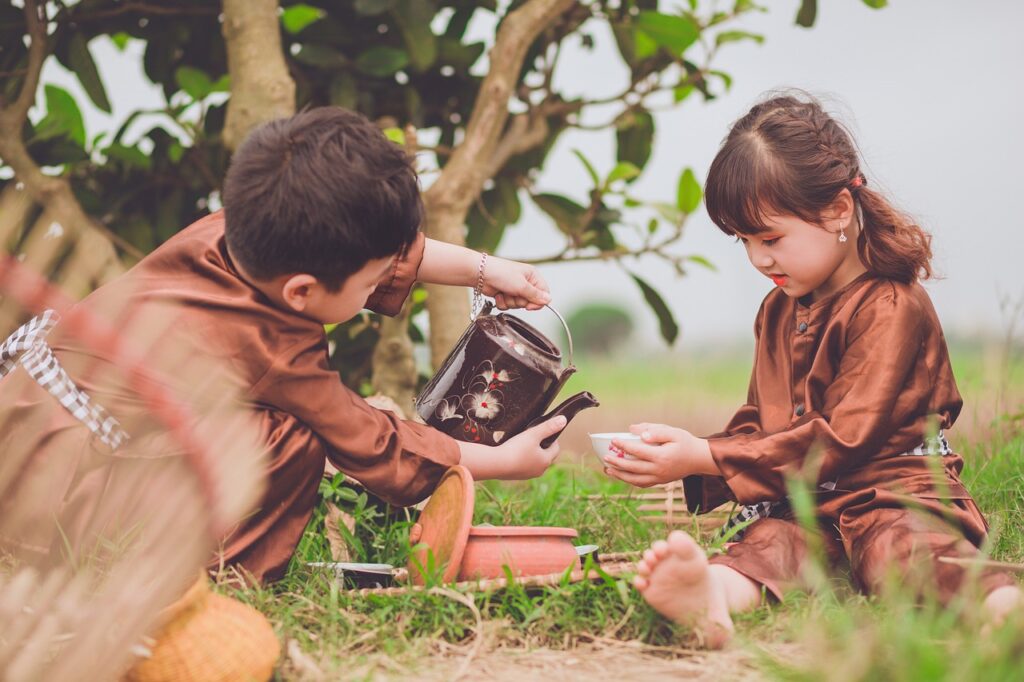7 ways to Raise KIND Kids!

Kindness is not a thing that can be implement in your kids in one day. Raising Kind kids, It’s not one time thing. It’s not a cross your fingers and hope it happens kind of thing.
We have to remind our kids often. Talk about it often. And encourage it often.
And we have to know it’s not going to happen overnight. It’s going to take time and practice and patience.
But At First, We as a Parent have to why kindness is important.
The Importance of Kindness
Teaching children to be kind helps them:
- Help them to be a Better Person.
- Help to Build strong, healthy relationships.
- Develop emotional intelligence.
- Feel happier and more fulfilled.
- Contribute positively to their communities.
Raising kind kids is an important goal for many parents. Teaching children to be kind helps them build positive relationships and understand the value of empathy. Here are some simple ways to encourage kindness in your children.
1. Model Kindness
It’s said that a child’s first school is their home. Whatever they see around them, they learn immediately. So, be a good role model. Kids learn by watching the adults around them, so show them what kindness looks like. Do small acts of kindness, like saying thank you, helping others, and being polite. When your child sees you being kind, they will want to do the same. Children learn by observing the adults in their lives. By modeling kind behavior, you show your children what kindness looks like in action.
2. Encourage Empathy
Talk about feelings. Help your child understand their own emotions and the emotions of others. Ask them how they would feel in different situations and encourage them to think about how others feel. This builds empathy, which is the foundation of kindness. It’s helps to understand and share the feelings of others. Teaching empathy helps children see things from another person’s perspective.
3. Promote Gratitude
Encourage them to help others. Whether it’s doing chores at home, helping a friend at school, or participating in community service, helping others teaches kids the value of kindness. Praise them when they do something kind and let them know you’re proud of them. Gratitude fosters a positive outlook and appreciation for what one has, which can lead to more generous and kind behavior.
4. Teach the Value of Helping Others
Helping others builds a sense of community and responsibility. Encourage your children to lend a hand whenever possible.Participate in community service projects as a family, such as cleaning up a park or helping at a food bank. Assign age-appropriate chores that contribute to the household. This teaches responsibility and the value of helping out.
5. Praise Kind Behavior
When your child exhibits kind behavior, acknowledge and praise it. Positive reinforcement encourages them to continue acting kindly.Be specific about what you’re praising. Instead of just saying, “Good job,” say, “I’m proud of you for sharing your toys with your friend.” Let your children know that you notice and appreciate their efforts to be kind.
6. Create Opportunities for Kindness
Provide opportunities for your children to practice kindness in their daily lives. Create a “kindness challenge” where your child tries to do at least one kind act each day. Encourage small acts of kindness, such as writing a thank-you note, helping a sibling, or complimenting a friend.
7. Read and Discuss Stories About Kindness
Books and stories can be powerful tools for teaching kindness. Read and talk about stories that highlight kindness. Choose books and movies that show characters being kind and discuss these stories with your child. Ask them what they learned and how they can be kind like the characters in the story. After reading, discuss the story with your child. Ask questions about the characters’ actions and how they showed kindness.
Dealing with Unkind Behavior
It’s normal for children to sometimes act unkindly. When this happens, it’s important to address the behavior calmly and constructively. Help your child understand how their actions affected others. Use questions like, “How do you think your friend felt when that happened?” Teach your child how to apologize sincerely and make amends. Focus on guiding your child toward better behavior rather than punishing them.
Welcome to A Mug Of Coffee
I am a mom with a young child, and I love coffee. Being a new mom was really hard, and I went through a lot. That’s why I created a special coffee to help other pregnant women, those trying to get pregnant, and new moms who are struggling. I love coffee so much that I’ve done a lot of research on it and can talk about it for hours. Whether you’re a mom or just love coffee, I think you’ll find something you like. Enjoy!




